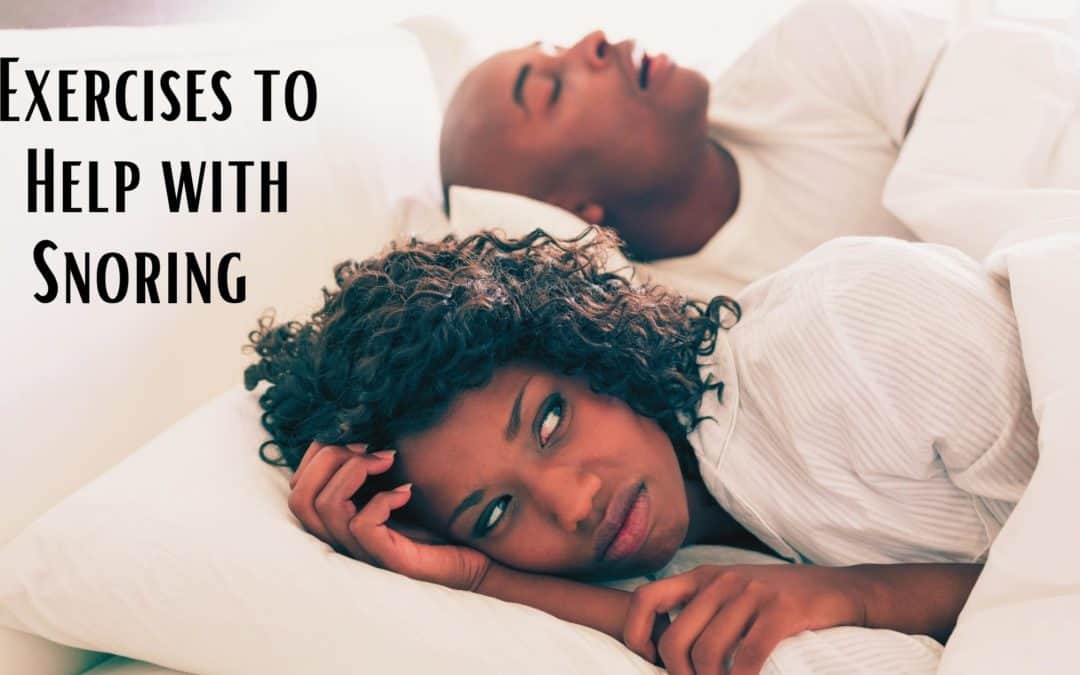It is common to snore every now and then if you have a cold or allergies that are stuffing up your nostrils. However, as the cold clears up or your allergies recede the snoring will also. An estimated 45 percent of adults snore occasionally, while 25 percent snore regularly. The most common reason for snoring is a blocked nose. It can become a huge source of contention for you and your bed partner, disrupting the other’s sleep and possibly your own.
Why Do We Snore?
Snoring happens when air cannot flow freely through the airway as you breathe in and out while you slumber. As the airway becomes narrowed or partially blocked, your breath causes the tissues of the upper airway to vibrate, which results in the sound of snoring.
There are many possible reasons that a person may have a chronically narrowed or blocked airway during sleep that causes snoring.
Sleep Apnea
Sleep apnea is a sleep-related breathing disorder marked by repeated pauses while breathing during sleep. While not everyone who snores has sleep apnea, most people with sleep apnea do snore. This occurs when partial or complete collapse of the airway causes an interruption in breathing and can lead to feelings of exhaustion and lack of rest during the day. It is an extremely dangerous condition increasing the risk of heart disease, high blood pressure, diabetes and even dementia. Can you imagine the impact that a loss of oxygen must have on your brain and body?! If you feel tired during the day or your partner notices that you snore or temporarily stop breathing in your sleep, we can help you treat the issue, most commonly with a CPAP or BIPAP machine to aid in breathing.
- Alcohol and Sedative Medication: Alcohol and other sedatives can cause snoring by relaxing the muscles of the throat.
- Smoking: Smoking cigarettes can inflame the upper airway increasing instances of snoring.
- Head and Neck Anatomy: The size and shape of the airway can constrict the airway and lead to snoring. People with deviated septums (uneven nasal passages) or extended or shortened throat or jaw can increase snoring.
- Nasal Congestion: A stuffy nose caused by a cold or allergies, during sleep may lead to snoring by reducing the flow of air and causing the airway to collapse.
- Sleep Position: Snoring occurs most commonly when you sleep on your back. This is attributed to the way gravity pulls on the tissues surrounding your airway. This makes the passageway narrower. Many find relief lying on their side or stomach.
Mouth Exercises to Help Reduce Snoring
Certain exercises can tone up your throat and mouth to strengthen your mouth and airway muscles. As your muscles become stronger, they are less likely to be floppy and flutter in your sleep. Technically the part of the body that needs strengthening to reduce snoring is called the oropharynx. This is the area at the back of your mouth which includes the back of the tongue, sides of the throat, tonsils, adenoids, and soft palate, which is the soft part in the back of the roof of the mouth. Repetitive pharyngeal exercises before sleep and during the day can prevent the tissue from vibrating while you sleep. In fact, studies have shown that building strength in these muscles has been shown to help reduce snoring and milder forms of obstructive sleep apnea.
How Often Do You Need To Do Mouth Exercises for Snoring or Sleep Apnea?
It is recommended that all you need to build up the strength of your oropharynx takes only ten minutes every day split up over two to three times a day. Studies have shown that over three months a significant change can happen to the frequency and intensity of snoring and sleep apnea. A recent study found that when exercising the oropharynx using a smartphone game for at least 15 minutes per day significantly decreased instances of snoring. The good news is that you can do them anywhere.
What Mouth Exercises Can Help Stop Snoring?
There is a wide range of exercises that isolate different parts of the oropharynx including the tongue, facial muscles, and throat. Exercises are grouped together, rotated, and recommended to be performed two to three times per day.
To find out more about how we can help with your sleep and snoring, contact us! We can help you diagnose issues with snoring and sleep apnea and find the best solution for you.

